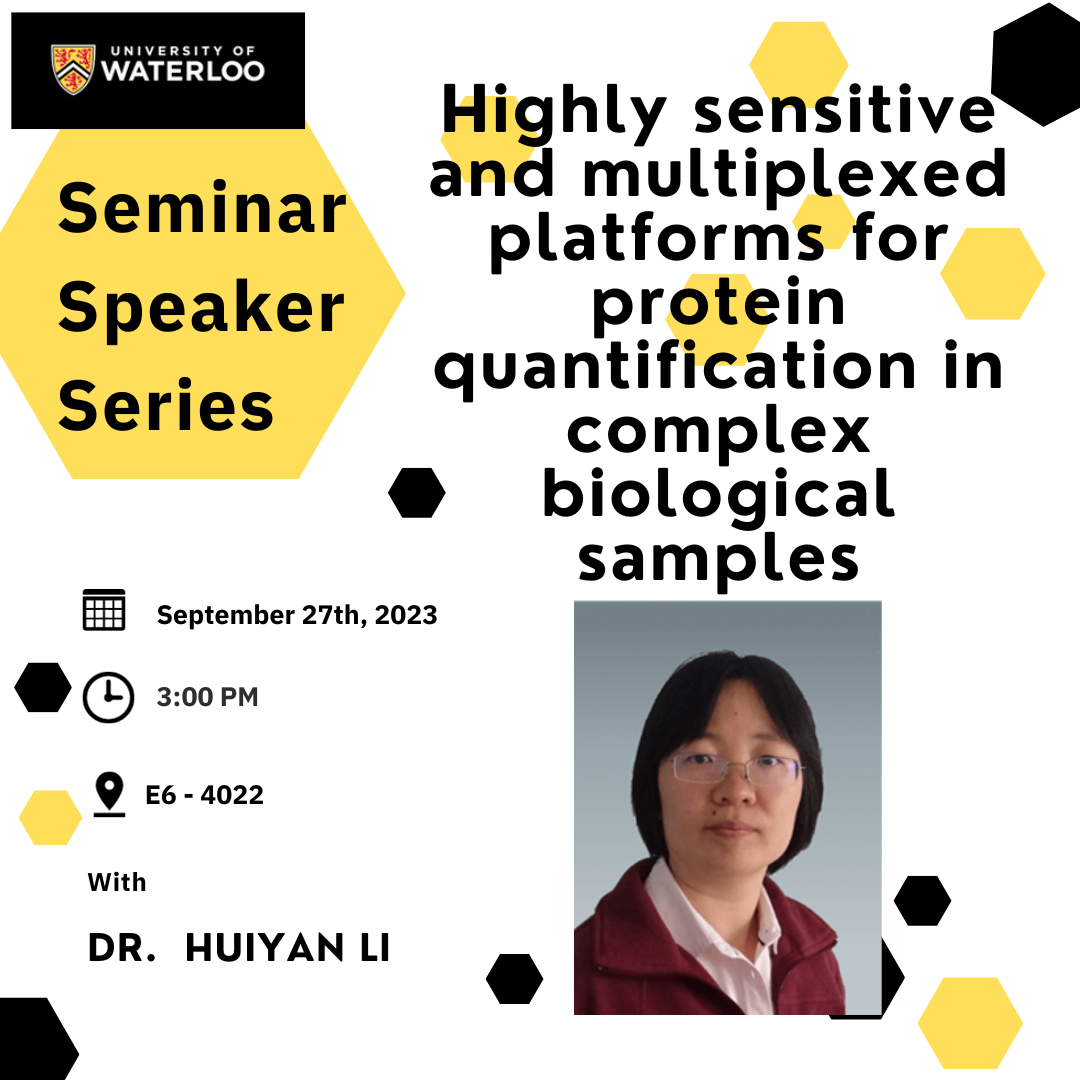
Biography
Dr. Huiyan Li obtained her M.A.Sc degree at the University of Victoria, and received her PhD in Biomedical Engineering at McGill University. After an NSERC funded postdoc training in UVic-Genome BC Proteomics Center, Dr. Li joined the Biomedical Engineering group as a CIHR postdoctoral fellow at Harvard Medical School – Massachusetts General Hospital, where she developed several technologies for the analysis of exosomes. In 2020, Dr. Li joined the University of Guelph and started her BioMed Innovation laboratory. Her research focuses on developing micro- and nano-technologies for the study of health and diseases, with a particular interest in studying the molecular content of exosomes for cancer management. Her work has been published in top peer-reviewed journals and has been highlighted in major scientific magazines.
Abstract
Cancer is the second leading cause of deaths worldwide. It was estimated that 2 in 5 Canadians could receive positive cancer diagnosis in their lifetime, with 1 in 4 dying from the disease. For many common cancers such as colon, rectum, and breast cancers, early diagnostics at the first stages, when the tumors are localized, had five-year survival rates over 90%. However, if detected at a late stage, when metastasis happened, the survival rate dropped significantly down to 10-20%. Tragically, the lack of effective technology for early cancer screening and diagnosis has resulted in many cases remaining undetected until late stages, resulting in loss of many years of life compared to those detected early. This talk will focus on our recent work on the development of several biosensing platforms for highly sensitive, multiplexed, and scalable quantification of proteins in extracellular vesicles (EVs) and cells. We have achieved the sensitivity up to four orders of magnitude higher than that of conventional assays. The ease of implementation facilitates technology dissemination, making them useful tools for the biomedical research community.